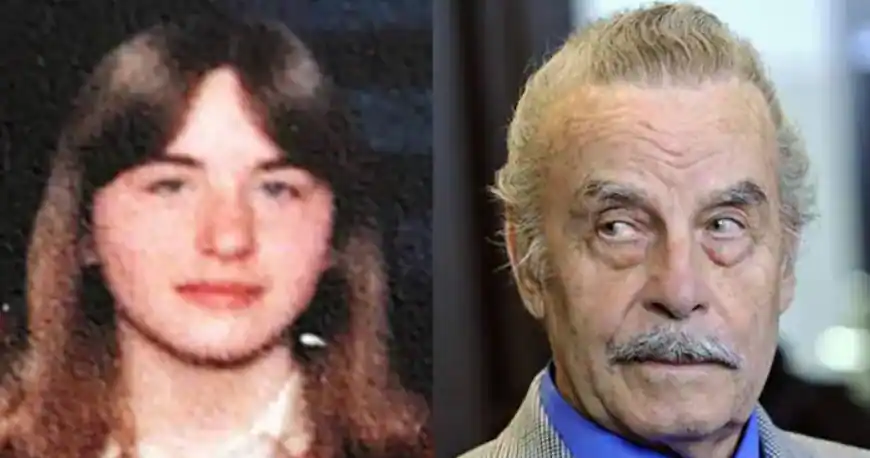Elisabeth Fritzl’s story gives you goosebumps. It is not only a story of imprisonment and suffering, but also of incredible strength and the will to survive against all odds. In this post, we delve deep into Elisabeth’s life, from her traumatic years in prison to her life today, and reflect on the broader implications of her story. It is a story about both human frailty and resilience.
Who is Elisabeth Fritzl?
Elisabeth Fritzl , born April 6, 1966 in Austria, was a normal, innocent child whose life took a dark turn due to the actions of her father, Josef Fritzl. Growing up in Amstetten, Austria, she had a seemingly ordinary family life, but beneath the surface, things were anything but normal. Her father’s control and abuse cast a long shadow over her early years and set the stage for the unimaginable horrors she later endured.
The beginning of Elisabeth’s nightmare
The nightmare began in 1984 when Elisabeth was just 18 years old. Her father got her to help him with a door in the basement, a room he had secretly converted into a prison. Once inside, he attacked her, beginning a captivity that would last an unimaginable 24 years. The outside world was told she had joined a cult – a lie that Joseph perpetuated to hide his heinous crime.
Life in captivity
Elisabeth Fritzl’s life in the basement was characterized by extreme deprivation and isolation. The small, windowless room was her world in which she lived in constant fear and uncertainty. She endured not only physical imprisonment but also psychological torment at the hands of her father. Despite these circumstances, Elisabeth showed extraordinary resilience and maintained hope even in the darkest moments.
The extent of abuse and survival
The mistreatment of Josef Fritzl was relentless and inhumane. Elisabeth Fritzl was repeatedly physically and sexually abused, which led to the birth of seven children. Despite the trauma, she found the strength to care for her children in that dark basement and provide them with love and education to the best of her ability. This period of her life speaks volumes about her indomitable spirit and her innate motherly strength.
The Fritzl household dynamics
While Elisabeth suffered in silence below, life continued upstairs. Josef’s wife Rosemarie and the rest of the family were unaware of the dark secret hidden beneath their feet. Joseph’s manipulation and control extended to the entire household and kept his terrible deeds hidden for years.
The turning point: discovery and escape
The turning point in Elisabeth’s suffering came in 2008, when her eldest daughter Kerstin became seriously ill. Elizabeth’s desperate pleas led Joseph to seek medical help, which ultimately unraveled his web of lies. The world was shocked when the truth about Elisabeth’s 24-year captivity emerged, leading to her long-awaited escape.
The legal dispute and Josef Fritzl’s conviction
Josef Fritzl’s crimes were soon exposed and he was brought to trial in one of the most sensational legal battles in Austrian history. He was sentenced to life in prison on several charges, including murder, enslavement and rape. This verdict marked the conclusion of a case that had shocked the world.
The psychological effect on Elisabeth Fritzl
The psychological scars that Elisabeth suffered are unimaginable. After her release, she and her children received extensive psychological support to begin the healing process. The trauma of her ordeal will always be a part of her, but her journey to recovery is a testament to her strength and the support of those around her.
Elisabeth Fritzl’s life today
Today, Elisabeth lives a life far removed from her years in captivity. She lives in a safe place in Austria, away from the public, and is focused on rebuilding her life with her children. While her story is painful, it is also a story of hope and the possibility of healing even after the most traumatic experiences Melanie Olmstead.
Further implications of the case
The Elisabeth Fritzl case had far-reaching effects beyond her personal history. It sparked a national and international discussion about the flaws in the social and legal systems that allowed such a crime to go unnoticed for so long. In Austria, this led to changes in the law regarding missing persons and a deeper investigation into the dynamics of family abuse. Global awareness has been raised about the hidden nature of domestic violence and the importance of vigilance in our communities.
Reflecting on resilience and the human spirit
Elisabeth Fritzl’s story is not only a tale of unimaginable hardship, but also an impressive testimony to the resilience of the human spirit. Her ability to survive, protect her children and ultimately rebuild her life is a source of inspiration. It reminds us of the strength that lies within each of us to overcome adversity, no matter how severe.
Resources and support for abuse survivors
Anyone who has faced similar challenges should know that support is available. Numerous organizations provide resources and support for survivors of abuse, helping them heal and move forward. These resources provide a vital lifeline, offering hope and support to those in need.
Conclusion
Elisabeth Fritzl’s story is a chilling reminder of the darkest aspects of human nature, but also a deeply inspiring tale of survival and the ability to heal. Although their journey has been marked by unimaginable suffering, it is also a testament to the remarkable strength and resilience inherent in the human spirit. It is a story not to be forgotten, serving as both a warning and a source of inspiration.


